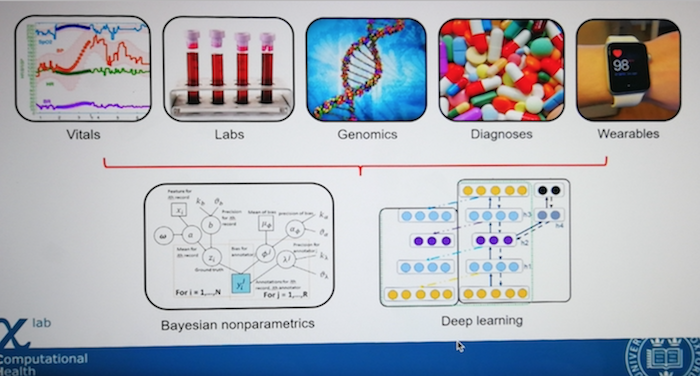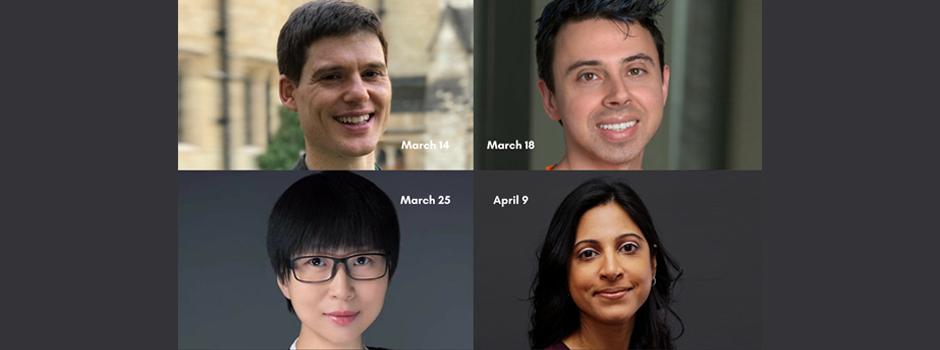The Computer Science Department kicked off its Computer Science for Social Good Seminar Series March 14 with a talk by David Clifton, an engineering science professor from the University of Oxford on how AI and machine learning can be used to improve patient outcomes and make interactions between medical professionals and patients faster, more efficient, and more humane.
“Doctors and nurses spend a lot of the time in admission and allocation of patients,” Clifton said. “Artificial Intelligence can help them easily … take multiple sources of data into consideration at the same time,” Clifton said. “Then they have more time to interact with patients.”
The Computer Science for Social Good series will feature three more talks by professors from NYU Tandon and Peking University. Topics covered in the coming weeks will include online harassment and data mining for public health.
The series is the brainchild of computer science major Shikhar Sakhuja ‘19. While he was studying away at NYU Tandon School of Engineering, Sakhuja assisted Damon McCoy, assistant professor of Computer Science and Engineering, on a research project that applied computer science tool boxes to understanding and identifying election fraud on social media platforms.
This experience made Sakhuja curious about other ways to use computer science for the betterment of society. “Lots of people see computer science only as a way to get rich in Silicon Valley,” Sakhuja said. “But it can be a powerful means to help people and improve the environment around us.”
Keith Ross, Dean of Engineering and Computer Science at NYU Shanghai, supported Sakhuja’s idea, and helped launch the series with Sakhuja and Maggie Mao, the Dean’s Senior Administrator. “We’d like students to know that computer science is not all about making money,” Ross said. “We can use it as a tool to make the world a better place.”

A screenshot of Clifton’s presentation on applying mathematics and deep learning to health data
In his 90-minute talk, Clifton shared his work applying artificial intelligence to clinical practice. He told attendees about the Visensia Safety Index, a tool that monitors patients’ vital signs, and compares those indicators with a massive database of statistics from other patients. Whenever the system picks up an unusual pattern, it alerts doctors and nurses that the patient may need attention. This often happens hours sooner than it would in a clinical setting unaided by AI tools.
Clifton said that his work does come with challenges. In a medical setting, “a model that fails 5% of the time will be unused 100% of the time. As we are talking about patients and real lives here, the programs designed for clinical use have to be highly reliable.”
3 more talks are coming this semester:
Online Hate, Harassment, and Abuse: Issues, Challenges, and Outcomes (Mar 18)
by Damon McCoy, Assistant Professor of Computer Science and Engineering, NYU
From Real World Data to Real World Evidence (Mar 25)
by Pei Gao, Research Fellow and PhD supervisor, Peking University
Data Mining and Machine Learning for Public Health 2.0 (Apr 9)
by Rumi Chunara, Assistant Professor of Biostatistics, NYU


